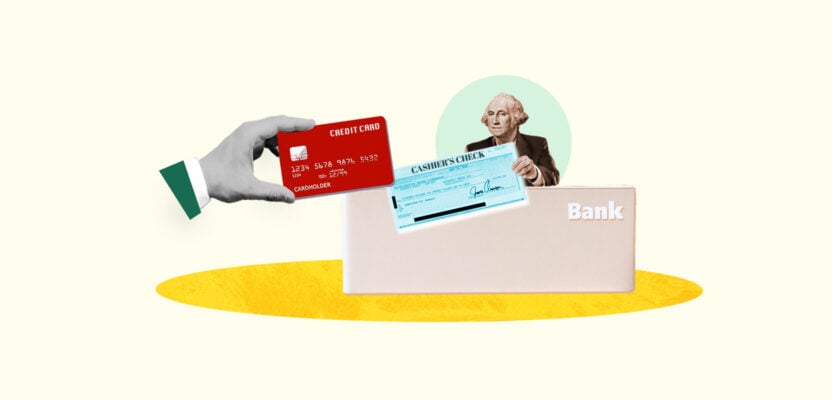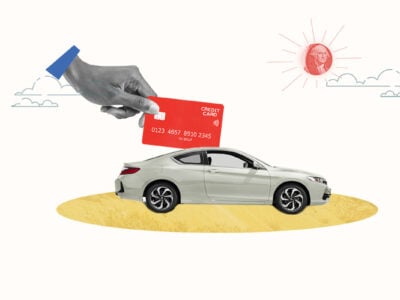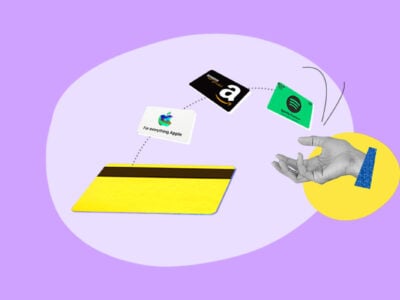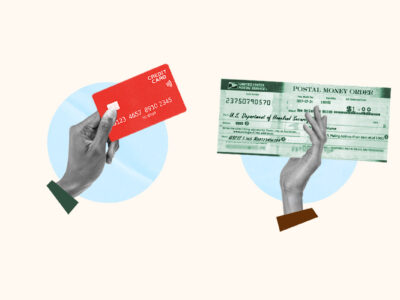A cashier’s check is a type of check that you have to buy and pay for upfront. The issuer (usually a bank) will put your money in its own account and later pay it to the check’s recipient. This means that cashier’s checks are very secure—because they draw on the bank’s own funds, they can’t possibly bounce.
Although cashier’s checks are useful, people don’t use them very often. They’re usually reserved for large purchases, such as a house or a car. If this is your first time buying one, you might be wondering how you’re supposed to pay for it. Do you have to pay with cash, or can you use a credit card?
Table of Contents
Why you can’t buy a cashier’s check with a credit card
Unfortunately, virtually no banks allow people to buy cashier’s checks with credit cards.
There are several reasons for this. The primary one is that cashier’s checks are meant to help you securely pay for something with your own money—not borrowed money.
Moreover, accepting credit card payments comes with certain risks and added expenses that banks don’t want to deal with. Doing so would open the bank up to the possibility of credit card fraud (i.e., the chance that identity thieves and other criminals would use stolen credit cards to buy cashier’s checks).
The bank would also be required to pay a credit card processing fee every time someone bought a check with their card. These fees are often 1–3% of the transaction amount, which, on a large cashier’s check, would be a significant expense for them.
What payment methods do banks accept for cashier’s checks?
When you get a cashier’s check, you can generally pay with cash or a debit card.
If you have an account at the bank you’re getting the check from, they’ll also let you pay with the money in it (skipping the step of withdrawing it or swiping your debit card). Banks prefer this method and will sometimes waive or reduce any fees they charge for buying a cashier’s check if you use it.
Workarounds that let you buy cashier’s checks with a credit card
Although banks don’t accept credit card payments for cashier’s checks, there is a workaround that you can use to buy one with money from your credit card: paying with a cash advance.
A cash advance on a credit card is a transaction where you use your card to borrow money instead of directly making a purchase (e.g., by withdrawing it at an ATM). It’s the most common way to use your credit card to get cash.
When you borrow money with a cash advance, you can use it to pay for a cashier’s check directly, or you can deposit it in your bank account and then pay with a bank transfer or debit card.
Downsides of getting a cashier’s check with a cash advance
Although this method of getting a cashier’s check with a credit card works, we recommend against it. Cash advances are meant for emergencies, and credit card issuers discourage their customers from performing them too often, so they come with several serious downsides:
- Added fees: Many credit cards charge a cash advance fee, often $10 or 5% of the transaction amount (whichever is higher). If you borrow a lot of money to buy a cashier’s check, the fee you’ll have to pay could be considerable.
- High interest charges: When you take out a cash advance, you’ll have to pay interest on the money you borrowed. What’s more, cash advances often have higher interest rates than other credit card transactions, and interest will start accumulating immediately (instead of after a grace period, which most cards feature for typical purchases).
- No rewards: If you’re planning on taking out a lot of money to pay for a cashier’s check, be aware you won’t earn any credit card rewards (such as cash back) on it to compensate for the added expenses. Almost all credit cards exclude cash advances from their rewards programs.
- Potential credit score damage: Spending a lot of money on your card can spike your debt-to-credit ratio (the amount of your available credit that you’re using). This will cause a drop in your credit score, since every major scoring model will penalize you for anything that looks like overspending.
The point is that using a cash advance to get a cashier’s check is a needlessly expensive and risky way to transfer money.
Again, that’s because taking out a cash advance is supposed to be a very occasional thing, reserved for emergencies when you really need quick cash—not something that you do frequently, and not something that you use for large purchases.
If you’re trying to pay for something and the seller requires a cashier’s check, it’s probably a situation where you should just pay with money from your bank account, not money you’re borrowing on credit.
Alternatives to using a cashier’s check
If you find that getting a cashier’s check just isn’t an option for you—whether it’s because you can’t use a credit card or because your bank doesn’t offer them to begin with—you can explore these alternatives:
- Personal loan: If you need to make a large purchase and you can’t afford to pay upfront, it’s better to take out a loan rather than put it on your credit card. That’s because loans have lower interest rates than cards. If you need to pay with a cashier’s check, you can take out a personal loan and use it to buy one. Just make sure not to apply for a loan that you’ll have trouble paying off according to schedule.
- Money order: Money orders are a lot like cashier’s checks. The difference is that they’re usually for $1,000 or less, and they’re easier to find; you can get them from retail stores as well as banks (and you don’t need to be one of the bank’s customers). Note that you usually can’t buy a money order with a credit card either. It used to be possible at 7-11 and Western Union, but they’ve since changed their policies, although some individual branches may still allow it.
- Certified check: This type of check is a bit like a cross between a personal check and a cashier’s check. You don’t have to pay for it in advance, but your bank will verify that you have enough money in your account before they give it to you. This is a solid alternative to a cashier’s check if your bank doesn’t offer those, although you still can’t get it with a credit card.
If none of those options works for you, you can always reach out to the seller and ask if they’re willing to compromise on the payment method they’ll accept.
But again, if they’re requesting a cashier’s check for a down payment on a house or a car, think carefully before trying to use your credit card—merchants prefer this payment method on transactions like that because they expect you to pay with your own money, not borrowed funds.






